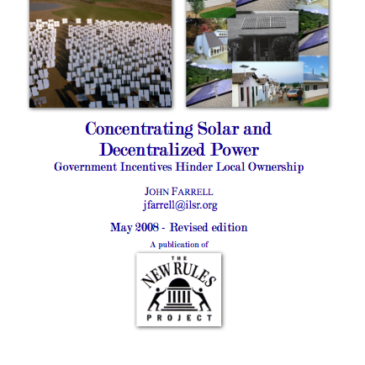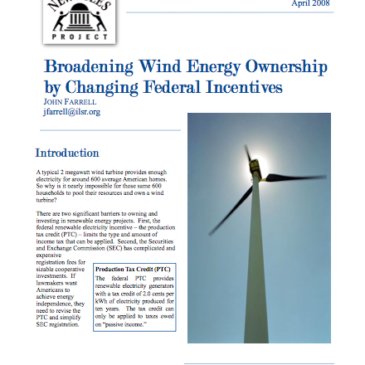Report: Concentrating Solar and Decentralized Power: Government Incentives Hinder Local Ownership
Can residential rooftop solar compete with new utility-scale concentrating solar electric plants? Only if federal and state incentives are amended to level the playing field. This May 2008 report explores the economics of solar PV and concentrating solar and shows how local ownership is hindered unless government solar incentives change.





